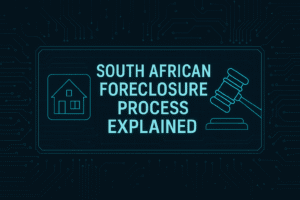Deed in Lieu of Foreclosure
Table of Contents
Deed in Lieu of Foreclosure What you need to know:
Introduction
Welcome to our comprehensive guide on the topic of “Deed in Lieu of Foreclosure.” In this article, we will delve into the meaning, process, advantages, and disadvantages of a deed in lieu of foreclosure. Whether you are a homeowner facing financial difficulties or a lender seeking to understand this option, this guide will provide you with valuable insights and information to make informed decisions.
1. What Is a Deed in Lieu of Foreclosure?
A deed in lieu of foreclosure is a legal document that enables a mortgagor, typically a homeowner, to transfer the title of their property back to the lender in order to satisfy the mortgage debt and avoid foreclosure. By voluntarily deeding the collateral property, which is often their home, back to the lender, the homeowner seeks relief from the financial burden and potential consequences of a full foreclosure proceeding.

2. Understanding Deed in Lieu of Foreclosure
In this section, we will explore the process and key aspects of a deed in lieu of foreclosure. It is important to note that this option is typically considered as a last resort when all other alternatives, such as loan modifications or short sales, have been exhausted.
2.1 The Process
When a homeowner chooses a deed in lieu of foreclosure, they willingly transfer the ownership of the collateral property to the lender. Both parties must enter into the agreement voluntarily and in good faith. The homeowner signs the document, which is notarized by a notary public and recorded in public records. By completing this process, the homeowner acknowledges that they will lose their home but will be relieved of the mortgage burden.
2.2 Benefits for Homeowners
While a deed in lieu of foreclosure may involve relinquishing the property and relocating, it offers certain benefits for homeowners:
- Relief from the Loan: By deeding the property back to the lender, homeowners are relieved of the remaining mortgage debt. This can provide a fresh start and an opportunity to rebuild their financial situation.
- Privacy and Reduced Embarrassment: Unlike a foreclosure, a deed in lieu of foreclosure is usually conducted with less public visibility. Homeowners may be able to minimize embarrassment and maintain a more private situation.
- Potential Leaseback Option: In some cases, homeowners can negotiate an agreement with the lender that allows them to lease the property back for a certain period of time. This can provide temporary housing while transitioning to a new living arrangement.
2.3 Key Differences from Foreclosure
It is important to understand the distinctions between a deed in lieu of foreclosure and a foreclosure:
- Credit Score Impact: While both options have implications for credit scores, a foreclosure generally has a more significant negative impact
of foreclosure are often handled with less public visibility compared to foreclosures. This means that homeowners who choose a deed in lieu of foreclosure may be able to avoid the possibility of officials showing up at their door to evict them, which is a common occurrence in foreclosure proceedings. By maintaining a lower profile, homeowners can mitigate potential embarrassment and maintain a sense of privacy during this challenging time.
3. Deed in Lieu vs. Foreclosure
While the terms “deed in lieu of foreclosure” and “foreclosure” may sound similar, they have distinct differences that homeowners and lenders should be aware of. Understanding these differences can help individuals make informed decisions based on their specific circumstances.
3.1 Foreclosure Process
In a foreclosure, the lender takes back the property after the homeowner fails to make mortgage payments. It’s important to note that foreclosure laws can vary from state to state, and there are generally two ways in which foreclosure can occur:
- Judicial Foreclosure: In this process, the lender files a lawsuit to reclaim the property through the court system. The court oversees the foreclosure proceedings, and the property is sold to satisfy the outstanding debt.
- Nonjudicial Foreclosure: This process allows the lender to foreclose without going through the court system. It typically involves following specific procedures outlined in state foreclosure laws.
3.2 Credit Score and Financial Responsibility
One of the significant differences between a deed in lieu of foreclosure and a foreclosure is their impact on credit scores and financial responsibility.
- Credit Score Impact: A foreclosure generally has a more severe impact on credit scores compared to a deed in lieu of foreclosure. Foreclosure can stay on credit reports for up to seven years, making it more challenging for individuals to obtain new lines of credit or secure favorable lending terms. On the other hand, the impact of a deed in lieu of foreclosure on credit scores is typically less severe, although it still has negative consequences.
- Financial Responsibility: When homeowners choose a deed in lieu of foreclosure, they are generally released from all further financial obligations related to the mortgage. This means they no longer have to make mortgage payments or pay off the remaining loan balance. In contrast, in a foreclosure, the lender may pursue additional legal actions to recover the outstanding debt, potentially leading to wage garnishments or bank account garnishments.
It’s important for homeowners to consider the long-term financial implications and weigh the potential impact on their creditworthiness when deciding between a deed in lieu of foreclosure and a foreclosure.
4. Advantages and Disadvantages of a Deed in Lieu of Foreclosure
In this section, we will explore the advantages and disadvantages of choosing a deed in lieu of foreclosure. Understanding these pros and cons can help homeowners make informed decisions based on their unique circumstances and goals.
4.1 Advantages
- Avoiding Lengthy and Costly Foreclosure Proceedings: One of the primary advantages of a deed in lieu of foreclosure is the ability to bypass time-consuming and expensive foreclosure proceedings. By reaching a mutually agreeable agreement with the lender, homeowners can save significant time, money, and emotional stress.
- Potential Privacy and Reduced Embarrassment: Compared to a foreclosure, a deed in lieu of foreclosure offers homeowners the opportunity to maintain a higher level of privacy and minimize public attention. This can be particularly beneficial for individuals who wish to protect their reputation and avoid the stigma associated with foreclosure.
- Opportunity for a Leaseback Arrangement: In some cases, homeowners may be able to negotiate a leaseback arrangement with the lender. This allows homeowners to remain in the property for a defined period,
Impact on Credit Score: While a deed in lieu of foreclosure may have a less severe impact on credit scores compared to a foreclosure, it still has negative consequences. It can result in a significant drop in credit score, making it more challenging to obtain new credit or secure favorable lending terms in the future. It’s important for homeowners to be aware of the potential credit implications before deciding on this option.
- Limited Control over the Outcome: When choosing a deed in lieu of foreclosure, homeowners relinquish control over the property and its future. They must be willing to accept the loss of their home and make arrangements for alternative housing. It’s essential to carefully consider personal and emotional attachments to the property before opting for this solution.
- Possible Deficiency Balance: Although a deed in lieu of foreclosure relieves homeowners from the mortgage debt, there may still be a possibility of a deficiency balance. If the value of the property is less than the remaining mortgage balance, homeowners may be responsible for paying the shortfall. It’s crucial to negotiate with the lender to waive any deficiency balance and obtain written confirmation to avoid potential financial burdens.
- Impact on Future Homeownership: While a deed in lieu of foreclosure allows homeowners to move on from their current financial situation, it may impact their ability to secure future mortgages. Lenders may view a deed in lieu of foreclosure as a negative factor when considering loan applications. It’s important for homeowners to understand the potential challenges they may face when trying to obtain a new mortgage in the future.
It’s essential for homeowners to carefully weigh the advantages and disadvantages of a deed in lieu of foreclosure based on their individual circumstances, financial goals, and long-term plans.
5. Reasons Lenders Accept or Reject a Deed in Lieu of Foreclosure Agreement
Lenders’ decisions to accept or reject a deed in lieu of a foreclosure agreement depend on various factors. Understanding these considerations can provide insight into lenders’ perspectives and help homeowners navigate the negotiation process effectively.
- Delinquency on Payments: Lenders may be more inclined to accept a deed in lieu of foreclosure if homeowners have demonstrated a history of delinquent mortgage payments. A higher level of delinquency increases the likelihood that the lender will consider alternative solutions to avoid lengthy and costly foreclosure proceedings.
- Mortgage Balance and Property Value: Lenders assess the mortgage balance and compare it to the estimated value of the property. If the property’s value is significantly lower than the remaining mortgage balance, lenders may be more willing to accept a deed in lieu of foreclosure as it can expedite the resolution and minimize their losses.
- Market Conditions: Overall market conditions, including local real estate trends, can influence lenders’ decisions. If the market is favorable and there is a strong likelihood of the lender being able to sell the property quickly and at a reasonable profit, they may be more inclined to accept a deed in lieu of foreclosure.
- Potential Risks and Liens: Lenders evaluate potential risks associated with the property, such as the present financial means, and avoid foreclosure. However, it’s important to note that lenders are not obligated to agree to a loan modification. Homeowners must provide evidence of their ability to meet the modified terms and demonstrate their financial stability to increase their chances of approval.
6.2 Short Sale
A short sale is another alternative to foreclosure that homeowners can explore. In a short sale, the lender agrees to allow the homeowner to sell the property for less than the remaining mortgage balance. This option can help homeowners avoid foreclosure and potentially minimize the impact on their credit score. However, it’s crucial to note that homeowners may still be responsible for any deficiency balance resulting from the difference between the sale proceeds and the outstanding mortgage balance. The specific terms of the short sale, including the release of the deficiency balance, should be negotiated with the lender before proceeding.
It’s important for homeowners facing foreclosure to consult with professionals, such as foreclosure prevention counselors or real estate attorneys, to understand their options fully and determine the most suitable course of action based on their unique circumstances.
7. FAQs
In this section, we will address common questions related to deeds in lieu of foreclosure:
1. Does a deed in lieu of foreclosure hurt your credit?
Yes, a deed in lieu of foreclosure can negatively impact your credit score. While the impact may be less severe compared to a foreclosure, it can still result in a significant drop in credit score and remain on your credit report for a certain period.
2. Which is better: foreclosure or deed in lieu of foreclosure?
In most cases, a deed in lieu of foreclosure is preferred over foreclosure. While both options have negative effects on credit, a deed in lieu of foreclosure generally has a shorter duration on credit reports compared to a foreclosure. Additionally, a deed in lieu of foreclosure may offer homeowners the opportunity to avoid eviction and maintain some level of privacy.
3. When might a lender reject an offer of a deed in lieu of foreclosure?
Lenders may reject an offer of a deed in lieu of foreclosure for several reasons. These include a property’s continued decline in value, extensive property damage, existing liens on the property, or specific restrictions outlined in the original mortgage note. Lenders assess the potential risks and costs associated with the property before making a decision.
8. The Bottom Line
A deed in lieu of foreclosure is a viable option for homeowners facing financial hardship and seeking to avoid foreclosure. It provides an opportunity to transfer the property back to the lender, relieve the mortgage debt, and potentially minimize the financial and emotional toll of a lengthy foreclosure process. However, homeowners must carefully consider the potential impact on their credit score, financial obligations, and future homeownership prospects.
Before making a decision, homeowners should consult with professionals, such as Real Estate Assist.
The Real Estate Assist Foreclosure Solution
Enter Real Estate Assist, a South African company disrupting the distressed real estate market with sustainable, bankable solutions for homeowners in financial distress.
Real Estate Assist offers a range of solutions designed to help homeowners navigate through tough times without resorting to drastic steps like a Deed in Lieu of Foreclosure. Here’s how they can help:
1. Debt Restructuring: Real Estate Assist’s team of professionals can help you analyze your current financial situation and work towards restructuring your debt, making it more manageable.
2. Negotiation with Lenders: Real Estate Assist can liaise with your lender on your behalf, finding an agreement that allows you to manage your repayments and avoid foreclosure.
3. Unlocking Equity: Through their unique approach, Real Estate Assist can assist in unlocking the equity in your property to address your financial needs.
4. Maximizing Sale Proceeds: If selling your property becomes a necessary step, Real Estate Assist will ensure you maximize your proceeds from the sale.
5. Long-term Support: Real Estate Assist doesn’t just stop at finding a solution for your immediate problem. They provide long-term support and guidance, helping you improve your cash flow and credit score, and creating lasting results.
In conclusion, while a Deed in Lieu of Foreclosure might seem like a quick escape, it might not be the best solution for homeowners in the long run. Companies like Real Estate Assist offer a more holistic approach, helping homeowners find tailored solutions that don’t just address the immediate problem, but also pave the way for a more financially secure future.



